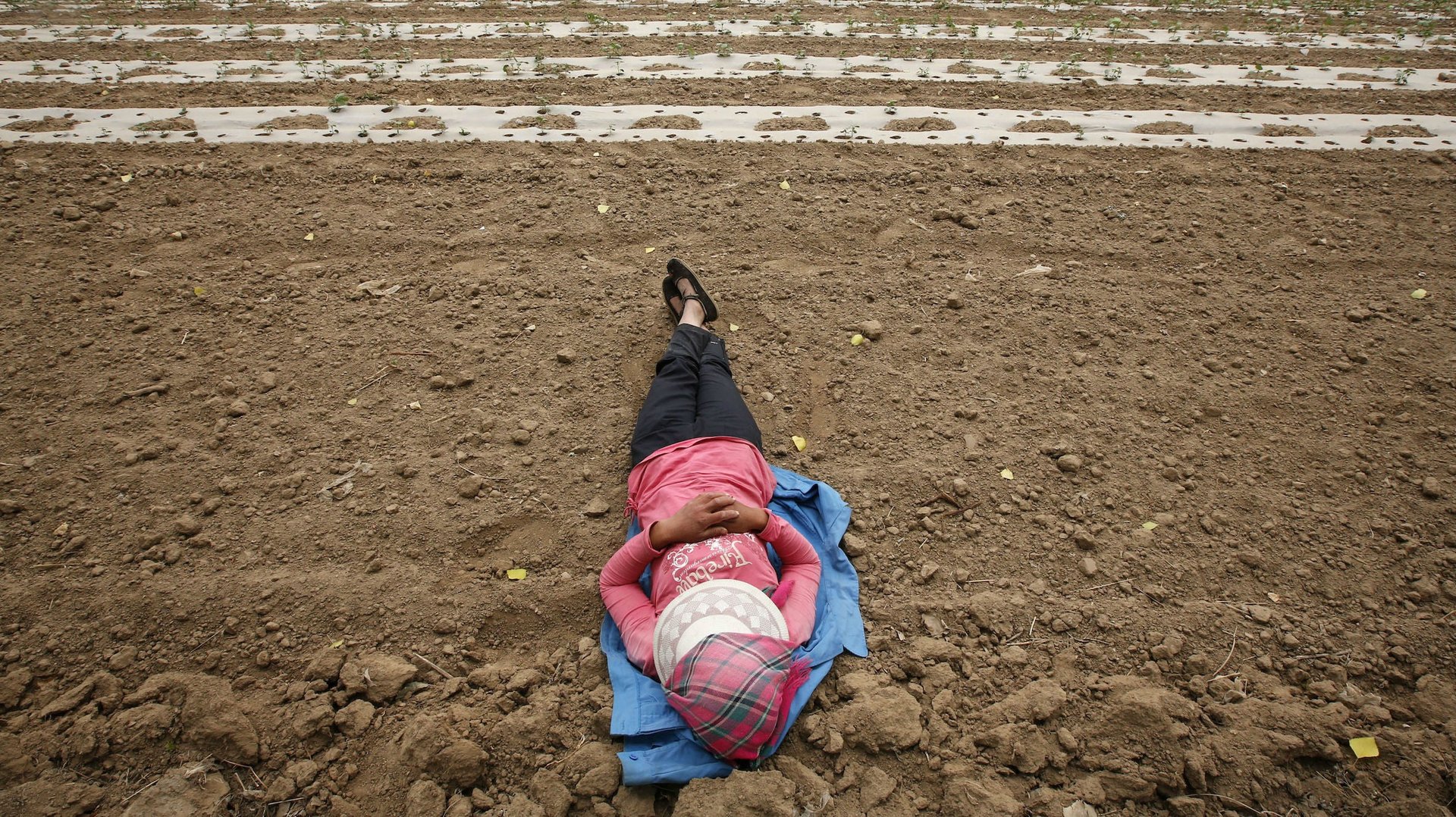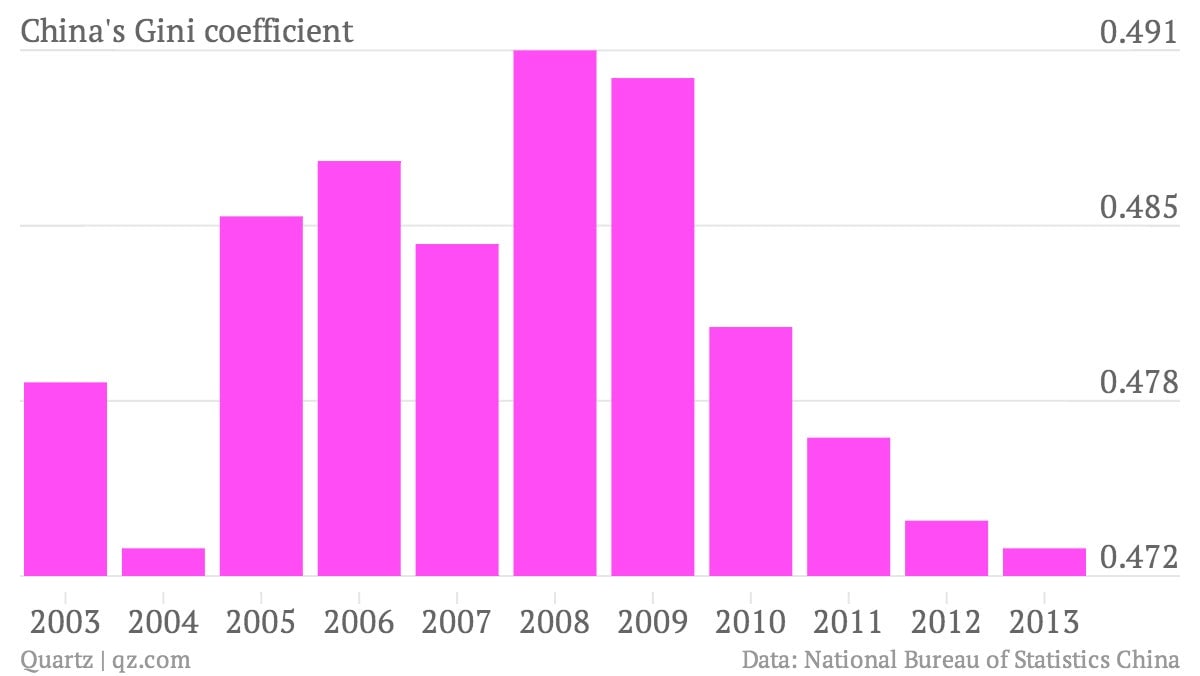China’s economy became a tiny bit more equal in 2013
China’s economy may have slowed in the last quarter, but officials offered this nugget of good news: inequality fell slightly—very slightly—last year. China’s Gini Coefficient, a widely used measure of income inequality where 0 indicates a completely equal society and 1 a completely inequal one, was 0.473 in 2013, down from 0.474 in 2012.


China’s economy may have slowed in the last quarter, but officials offered this nugget of good news: inequality fell slightly—very slightly—last year. China’s Gini Coefficient, a widely used measure of income inequality where 0 indicates a completely equal society and 1 a completely inequal one, was 0.473 in 2013, down from 0.474 in 2012.
According to official statistics, China is seeing a steady downward trend in inequality since 2008.

But hold off on the celebration: Many researchers say Chinese inequality is actually much greater than the government estimates. A group at a university in Chengdu says the metric was around 0.61 in 2010, compared to the government’s estimate of 0.481 that year. The World Bank says China is one of the least equal countries (pdf) in East Asia, on par with poorer Latin American countries like Nicaragua or Peru.
Chinese leaders have to be worried about how long their people will continue tolerating a yawning income gap, even if it is improving. China’s poorest citizens, mostly farmers, have traditionally been some of the most supportive citizens of the government. According to one 2010 study (paywall), poor farmers also appeared to be the least discontent over income inequality, which they viewed as part of development and a sign of a better future for themselves—a behavior that economists have labeled the ”tunnel effect.”
But that can only last for so long. For almost a decade, China hasn’t managed to reach a Gini coefficient lower than 0.4, the point at which a society becomes vulnerable to social unrest, according to the United Nations. Perhaps officials started publishing the index in 2012 for the first time in years to show improvement or at least “resolve to bridge the gap,” as the People’s Daily explained. And last week, the central government again deemed rural development (paywall) a top priority for the year.
Deng Xiaoping, the architect of China’s economic opening, famously said the country should let “some people get rich first.” It’s about time for the rest to catch up.